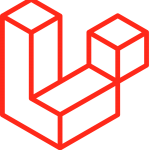Hire remote Ruby on Rails developers that you can trust
Hire Ruby on Rails developers from a unique network of 50,000+ pre-vetted offshore talents from Europe and Latin America, looking for a full-time contract. YouTeam developers stand apart for their ability to think like product managers and act like software architects. We also manage everything, so there’s zero overhead for your company.
Hire developers101 best Ruby on Rails developers for hire on YouTeam in February 2025

Anastacia
Full-Stack Engineer
Oleg
Software Developer
Mauro
Full-Stack Developer
Eugene
Senior Software Engineer
Abel
Senior Software Engineer
Salvatore
Senior Back-End Developer
Carlos
Senior Developer
Frank
Web Developer
Bruno
Software Developer
Nicolás
Software EngineerStart hiring to
see all talent
Hire
developers

Best Developer
Software EngineerTrusted by Fortune 500 companies and Y Combinator startups
Why hire Ruby on Rails developers with YouTeam
 48-hour personalized matching
YouTeam handpicks the best-matched candidates.
48-hour personalized matching
YouTeam handpicks the best-matched candidates.
 Zero overhead
Locally-compliant contracts and billing
Zero overhead
Locally-compliant contracts and billing
 Dedicated white-glove support
Dedicated white-glove support






How to hire Ruby on Rails developers with YouTeam
Share your requirements Set up a quick call with one of our Matching Experts — your dedicated contact at YouTeam.
Undergo Personalized Matching Your Matching Expert curates a candidate list, conducts pre-interviews, and ensures a perfect match for your needs—covering developers' skills, tech stack preferences, interests, and personality.
Meet the right candidates Review a list of candidates screened specifically for your request and pick the best for the interview stage. Average interview-to-hire ratio on YouTeam platforms: 1.75.
Hire and work with confidence YouTeam automates contract signing and invoicing through its secure system. Your dedicated Matching Expert stays with you throughout the collaboration with contractors.

Find developers skilled in related technology
More technologiesRead about Ruby on Rails on our blog
 Hiring a Ruby On Rails Developer in 2024: A Complete Guide
Hiring a Ruby On Rails Developer in 2024: A Complete Guide
Svetlana Shevchuk
 Should you use Ruby on Rails or Django? Explained by an expert software developer.
Should you use Ruby on Rails or Django? Explained by an expert software developer.
Tristan Senycia
About Ruby on Rails
- What is Ruby on Rails?
- Key use cases for Ruby on Rails
- Ruby on Rails tech stack: Key components
- What is the role of a Ruby on Rails developer?
- Ruby on Rails developer experience levels
- Tasks and responsibilities of Ruby on Rails developers
- Skills to look for in a Ruby on Rails developer
- Hiring Ruby on Rails developers: Hard skills assessment questions
- What is the average salary for Ruby on Rails developers?
- Types of Ruby on Rails developers: Freelancers, in-house engineers, and outsourced programmers
- How to write the Ruby on Rails developer job description
Ruby on Rails, often referred to as Rails or RoR, is an open-source web application framework written in the Ruby programming language. It follows the Model-View-Controller (MVC) architecture, making it a popular choice for building database-backed web applications. Rails emphasizes convention over configuration and promotes DRY (Don’t Repeat Yourself) principles, which help developers write clean, maintainable code efficiently. Thanks to its robust ecosystem and large community, Ruby on Rails enables rapid development while supporting scalability, which makes it ideal for startups and established companies alike.
Ruby on Rails is widely known for its versatility in web development, and here are some specific use cases where it excels:
1. Rapid Prototyping for Startups
Ruby on Rails is a favorite among startups because of its speed in delivering Minimum Viable Products (MVPs). Its conventions and extensive libraries make it easier to build prototypes quickly, allowing companies to test ideas and get to market faster.
2. E-Commerce Platforms
The framework’s built-in functionalities, like database handling and secure payment gateway integrations, make it an ideal choice for developing e-commerce platforms. Popular online shops like Shopify are built on Rails, thanks to its scalability and security.
3. Social Networking Websites
Ruby on Rails is commonly used to develop social media platforms due to its support for real-time functionalities like messaging, notifications, and activity feeds. Basecamp, the project management tool, is an example of a popular application built using RoR.
4. Content Management Systems (CMS)
Rails also powers content-heavy platforms such as blogs, news websites, and publishing platforms. Its seamless integration with database management makes it a great tool for managing large amounts of dynamic content.
Ruby on Rails provides a comprehensive tech stack that enhances web application development. Here are the essential components:
1. ActiveRecord
ActiveRecord is Rails’ Object-Relational Mapping (ORM) layer, allowing developers to interact with databases using Ruby code rather than SQL queries. It simplifies database management and ensures a clean, readable code structure.
2. ActionController
The ActionController is part of the MVC framework and handles the business logic. It processes incoming requests, retrieves the necessary data, and renders views, making it the core component of web application workflows.
3. ActionView
ActionView renders the views in Rails applications, converting data into HTML for web browsers. It supports reusable templates and partials, improving the flexibility and maintainability of the front-end.
4. RubyGems
RubyGems is a package manager for Ruby applications, allowing developers to easily add third-party libraries or gems to their projects, accelerating development. Popular gems include Devise for authentication and RSpec for testing.
A Ruby on Rails developer is responsible for creating and maintaining web applications using the Ruby programming language and the Rails framework. Their role includes:
- Designing server-side logic and ensuring the application’s responsiveness and scalability.
- Integrating front-end elements built by other team members with the back-end.
- Managing databases and writing complex queries.
- Testing and debugging applications to maintain performance.
- Ensuring security best practices are implemented in web applications.
Junior Ruby on Rails Developers
- Experience: 0 to 2 years
- Skills: Basic knowledge of Ruby and Rails conventions, understanding of MVC architecture, experience with HTML/CSS and JavaScript.
- Role: They handle simple feature implementations, bug fixes, and testing under the guidance of more experienced developers.
Mid-Level Ruby on Rails Developers
- Experience: 2 to 5 years
- Skills: Proficient in Rails, comfortable working with databases, and capable of writing complex queries and developing APIs.
- Role: Mid-level developers work independently on feature development and collaborate on complex tasks, optimizing performance and integrating APIs.
Senior Ruby on Rails Developers
- Experience: 5+ years
- Skills: Deep expertise in full-stack development using Ruby on Rails, database management, scaling applications, and securing web applications.
- Role: They lead project teams, mentor junior developers, and make architectural decisions to ensure the scalability and security of web applications.
Ruby on Rails developers are responsible for a wide range of tasks:
- Back-End Development: Creating and maintaining databases, servers, and APIs.
- Front-End Integration: Collaborating with front-end developers to ensure seamless user interface integration.
- Application Testing: Conducting automated and manual testing to maintain application stability.
- Performance Optimization: Analyzing and optimizing the application for performance and scalability.
- Security Enhancements: Ensuring the application adheres to security best practices to protect against vulnerabilities.
When hiring Ruby on Rails developers, look for candidates with the following skills:
- Proficiency in Ruby and Rails: The developer should be well-versed in the Ruby programming language and the Rails framework.
- Database Management: Experience with databases such as PostgreSQL or MySQL, along with ORM tools like ActiveRecord.
- Front-End Skills: Knowledge of HTML, CSS, JavaScript, and popular front-end frameworks (e.g., React, Vue.js) for integrating user-facing elements.
- API Development: Expertise in building RESTful APIs and integrating third-party services.
- Version Control Systems: Proficiency in Git for collaboration and version management.
- Problem-Solving Abilities: Strong troubleshooting and debugging skills to handle complex issues.
1. Explain the MVC architecture in Ruby on Rails and how it improves application development.
A well-rounded answer should cover how MVC separates concerns by dividing the application into three layers: Model, View, and Controller.
2. How do you manage database migrations in Ruby on Rails?
Candidates should discuss the process of using Rails’ migration feature to make database schema changes while keeping the database consistent across environments.
3. What are callbacks in Rails, and how would you use them effectively?
Expect an explanation of lifecycle callbacks such as before_save, after_create, and best practices for avoiding callback-related pitfalls.
4. How do you handle security concerns in Rails applications?
Look for a deep understanding of Rails’ built-in protections, such as CSRF (Cross-Site Request Forgery), SQL injection prevention, and proper user authentication/authorization mechanisms.
5. Describe how you would optimize a slow-running Rails application.
Candidates should be able to discuss performance optimization techniques, such as eager loading, database indexing, and caching strategies.
Ruby on Rails developers’ salaries vary depending on experience, location, and project complexity. Here’s an overview of salary ranges:
- United States: In the US, junior developers earn between $65,000 and $85,000 annually, while mid-level developers earn around $85,000 to $110,000. Senior developers, especially those with experience in scaling complex applications, command salaries between $120,000 and $160,000, with higher rates in tech hubs like San Francisco and New York.
- Latin America: In countries like Brazil and Argentina, junior developers typically earn between $20,000 and $35,000, while mid-level professionals see salaries ranging from $35,000 to $55,000. Senior developers with specialized expertise can earn around $60,000.
- Eastern Europe: Developers in Poland or Ukraine earn between $25,000 and $45,000 for junior positions, while mid-level salaries can reach $50,000 to $70,000. Senior developers with extensive experience can command rates around $85,000.
Freelancers:
Hiring freelance Ruby on Rails developers offers flexibility, allowing businesses to bring in specialized talent for short-term projects. Freelancers are often well-versed in diverse projects and can provide cost-effective solutions. However, they may not always offer the same long-term commitment or availability as in-house teams, and managing communication and deadlines can be more challenging.
In-house Engineers:
In-house Ruby on Rails developers work as dedicated team members within your organization. They tend to deliver higher-quality work due to their deeper understanding of the company’s goals, culture, and long-term vision. In-house developers are ideal for projects that require ongoing development, maintenance, and rapid iterations. However, hiring full-time developers involves higher costs, including salaries, benefits, and onboarding expenses.
Outsourced Programmers:
Outsourcing your Ruby on Rails development to an external agency or specialized teams can be a scalable and cost-effective option. Outsourced developers often bring in broader experience and fresh perspectives on complex projects. While it allows for flexibility, businesses may face some challenges in communication and have less control over the development process compared to managing an in-house team.
Writing an effective Ruby on Rails developer job description is essential to attracting top talent. The description should clearly outline the required skills, experience level, and specific duties the developer will take on within your organization.
Job Title and Overview:
Start with a clear job title, such as “Ruby on Rails Developer” or “Full-Stack Ruby on Rails Developer.” Follow this with an overview of your company, the type of projects, and how the developer will contribute to achieving your business goals.
Key Responsibilities:
- Develop and maintain web applications using the Ruby on Rails framework.
- Collaborate with cross-functional teams, including designers, project managers, and other developers.
- Integrate data storage solutions (e.g., databases like PostgreSQL or MySQL).
- Perform code reviews, debugging, and refactoring to improve performance.
- Stay updated with the latest RoR trends and best practices to ensure the applications remain secure and scalable.
Required Skills and Qualifications:
- Strong proficiency in Ruby and the Ruby on Rails framework.
- Experience with front-end technologies such as HTML, CSS, and JavaScript.
- Familiarity with database management systems like MySQL or PostgreSQL.
- Knowledge of RESTful APIs and web services integration.
- Experience with version control tools (e.g., Git).
- Strong problem-solving abilities and attention to detail.
Preferred Qualifications:
- Experience with cloud services (e.g., AWS, Azure) for app deployment.
- Knowledge of front-end frameworks like React or Vue.js.
- Familiarity with agile methodologies and test-driven development (TDD).
Work Environment and Benefits:
Briefly mention if the role is remote, hybrid, or in-office, and highlight key benefits such as flexible hours, career development opportunities, and health insurance.
FAQ about Hiring Ruby on Rails developer
Why choose YouTeam to hire Ruby on Rails developers?
YouTeam offers access to a highly qualified pool of Ruby on Rails developers, helping you scale your team quickly. Each developer is thoroughly vetted, ensuring their skills, experience, and reliability. With partnerships across 500+ development agencies and over 50,000 developers, you can receive qualified candidates within 48 hours, making it a fast and reliable solution for your hiring needs.
How does YouTeam vet Ruby on Rails developers?
YouTeam follows a multi-stage vetting process. First, developers are sourced from trusted development agencies, ensuring they meet the necessary skill and experience requirements. Pre-screened candidates are then forwarded to clients for further interviews, allowing them to select the best fit based on specific project needs.
How much does it cost to hire the best Ruby on Rails developers through YouTeam?
The cost of hiring Ruby on Rails developers on YouTeam varies based on factors like expertise, location, and skills. On average, a Ruby on Rails developer through YouTeam charges around $51 per hour, though rates can fluctuate depending on specific project requirements.
How quickly can you hire with YouTeam?
With YouTeam, you can hire developers faster than traditional methods. Here’s why:
1. Shortlist in 48 hours: Powered by our AI Matchmaker and human experts, we deliver a tailored shortlist of vetted candidates within just 48 hours.
2. Larger talent pool: As a marketplace, YouTeam offers access to a broader range of developers from hundreds of partner agencies, giving you more options than typical outsourcing agencies.
3. Seamless process: From the moment you request a call, our Matching Experts handle the rest, ensuring you quickly receive top-quality candidates who match your precise requirements.
YouTeam helps its clients build development teams within just a few weeks, not months.
What is the no-risk trial period for YouTeam developers?
1-Month Trial: You can terminate the engagement at any time during the first month.
Free Replacements: If you’d like to replace a contractor, we’ll do it within two weeks, free of charge.
You can learn more by reading our Money-Back Guarantee.
How is YouTeam different from freelance portals for hiring Ruby on Rails developers?
Unlike freelance platforms, YouTeam connects you with developers from trusted software development agencies, not freelancers. This ensures that developers have the necessary technical and soft skills, along with relevant experience. If a developer needs to be replaced unexpectedly, YouTeam can quickly provide a substitute of equal skill to avoid project delays.
Reviews
“It's just much more convenient to find a small team. I talk to one person, get 5 hand-picked CVs, interview candidates, hire the best ones – and I’m done!”
“Every time YouTeam sends me a list of potential developers, I am confident that I can interview pretty much anybody and they will be a good candidate.”
“The decision to use YouTeam was made by comparing them directly to the other candidates. As soon as I started talking to them, YouTeam adopted a hands-on approach. Time-wise, YouTeam also performed well.”
“We will definitely continue with them in the future. I’m so happy with their work that I’ve recommended them to my other company as well. There were no issues, it was really good. I gave a very loose brief, and the developer who worked for me had enough initiative to tighten it up by asking relevant questions. There was no messing around—it was done really well, with good, clean code.”
“YouTeam was very quick and responsive. I was presented with great candidates in just days, which was fantastic for me because we were looking to move fast. They had experience working on similar projects to exactly what we needed.”
“We wanted to boost our capacity for a period of six to twelve months. I decided to get a shot with YouTeam is that in any other place I can't say that I'm looking for a team of 5 developers with the possibility to scale. Now I returned to them again - this time for the confidence. If somebody is on the YouTube platform, you know that they've met a certain threshold of customer satisfaction, they've got a history of successful work elsewhere.”









